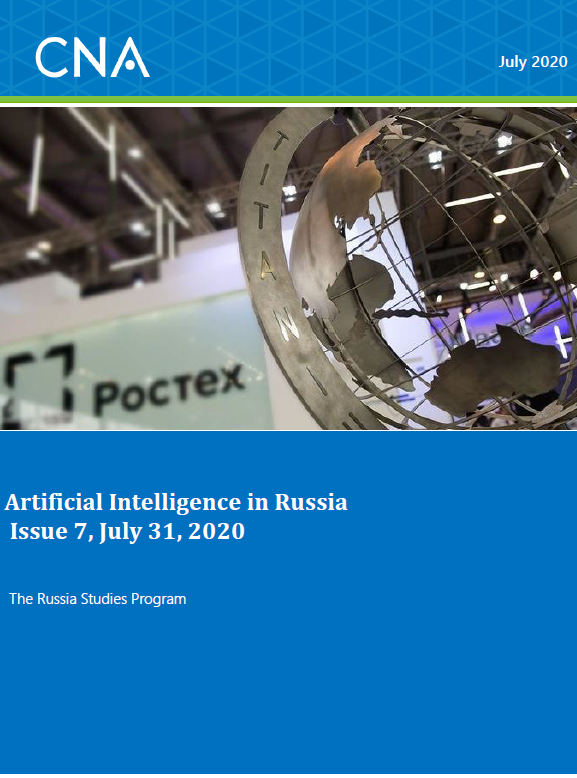The Artificial Intelligence in Russia newsletter features a summary of recent Russian-language reports on the Russian AI and autonomy ecosystem, divided into the following sections:
- Governance and Legal Developments
- Military and Security Developments
- Corporate and Market Developments
- Education and Training Developments
- Russian ICT Conferences
- Spotlight: POM-3 landmine
The following preview shows the first item in this issue:
1. Russian government reviews regulation concept for AI and robotics
On July 21, Kommersant reported that the Russian government was reviewing a concept for the development of regulation in the AI and robotics sphere until 2024, written by Russia’s Ministry of Economic Development, Sberbank, and Skolkovo. The concept reportedly enumerates gaps and challenges of regulation, including privacy and liability for harm from AI and robotic systems. Roskosmos and other federal government bodies are to respond within three months with their respective proposals to implement the concept within the frameworks of two federal projects: “Normative regulation of the digital environment,” and “AI” of the national program “Digital Economy of the Russian Federation.”
This concept is reportedly based on the notions of (1) “stimulation before regulation,” which means that limits will be imposed only if there is risk of implementing new technologies, and (2) the “human-centered approach,” which means that the employment of AI should not lead to harm. These point to certain obstacles to the adoption of new technologies, including the adaptation of data laws to account for privacy concerns, the creation of a safe regime to access the data, and the removal of limits to the employment of data. Another challenge involves delineating responsibility for harm caused by AI and robotic systems; the authors propose the development of insurance instruments coupled with an explicit description of conditions in which an AI system would identify itself when in direct contact with a human. The concept also recommends simplifying regulations to ease exports on AI technologies and improving intellectual property rights.
The article quotes the executive director of Sberbank.ai, Andrey Neznamov, as discussing the balance between data privacy and experimentation and the insufficiency of current regulatory “sandboxes” to test unmanned transport systems, for example. The head of the KPMG technology practice in Russia, Sergey Vikharev, notes the importance of loosening regulations in order to develop medium-sized businesses and startups. Ivan Begtin, head of the autonomous non-profit organization (ANO) “Information culture,” noted that Russia’s efforts to regulate AI are lagging behind because the country does not have a national strategy for working with data.
Download reportDISTRIBUTION STATEMENT A. Approved for public release: distribution unlimited. 7/31/2020
Details
- Pages: 30
- Document Number: DOP-2020-U-027701-Final2
- Publication Date: 7/30/2020
